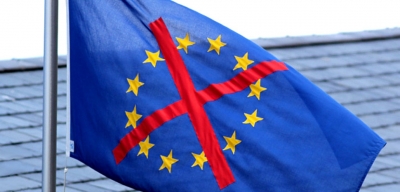
Euroscepticism or EU-scepticism is a European political doctrine that criticises the European Union (EU) and European integration and advocates disengagement from the same.
Euroscepticism questions the rigid bureaucratic structure of the EU and its favouritism towards elite member states. The belief that EU integration threatens national sovereignty and identity and its alleged lack of democratic legitimacy and transparency are other contributing reasons. The free-trade and open border policies of the EU that encourage high levels of migration are strictly opposed by the Eurosceptics. According to them, stricter immigration policies need to be imposed.
It has a historical background. World War II, which had shattered the national sentiments, made the re-building process of the European countries extremely difficult. Political and economic integration was widely seen as a path to reconciliation between the former enemies. This laid the foundation for the EEC and, later on, the EU.
The subsequent decades witnessed a steady progression toward creating a single organization with more and more members joining the EEC. However, the raised hopes towards faster political and economic integration were slowed down in 1992, when voters in Denmark rejected approval of the Maastricht Treaty, the founding document of the EU. France too, barely approved the treaty, with just 51 per cent of the vote favouring the treaty.
This was proof enough that waves of Euroscepticism were gaining unprecedented strength and prominence, much to the shock of the EU supporters.
Picture Credit : Google




